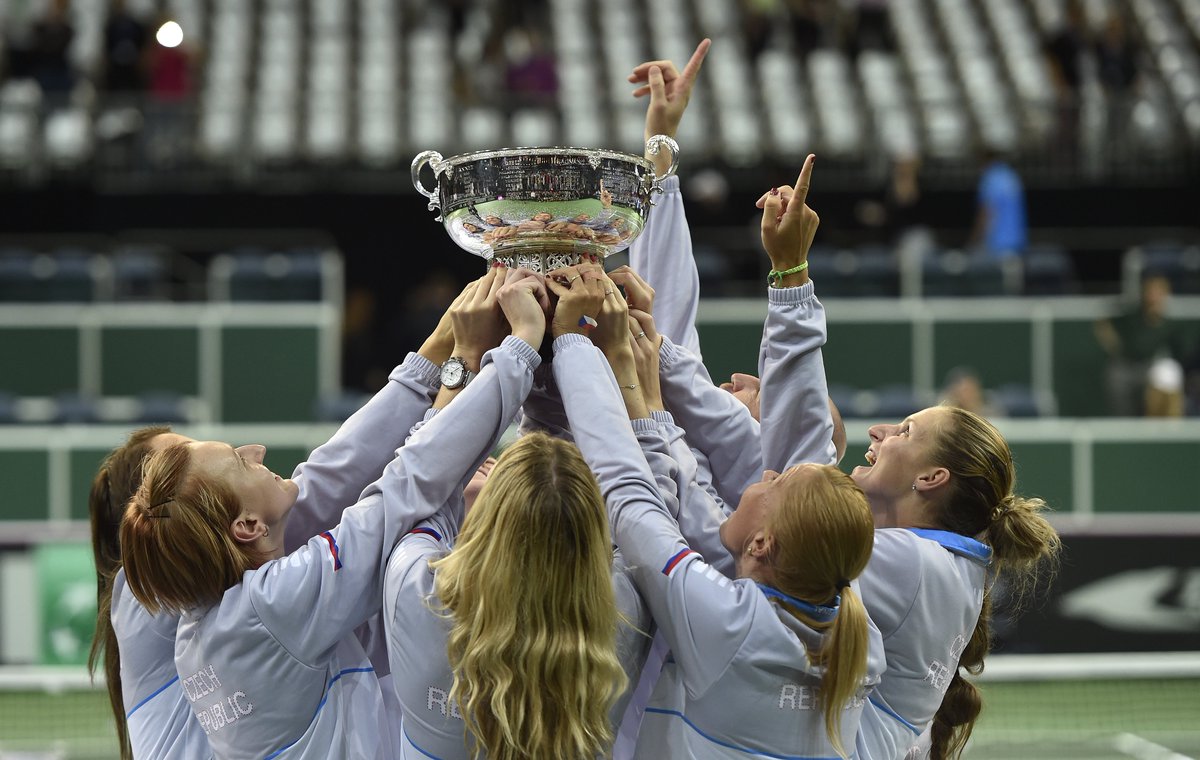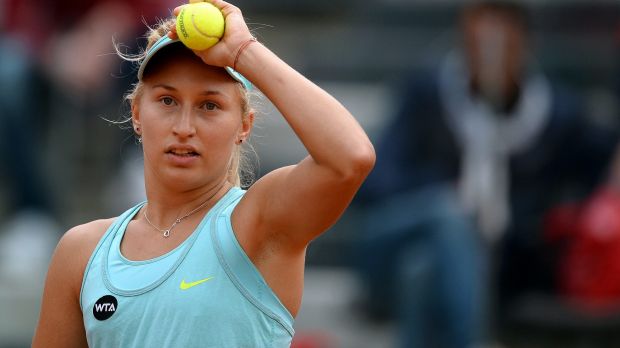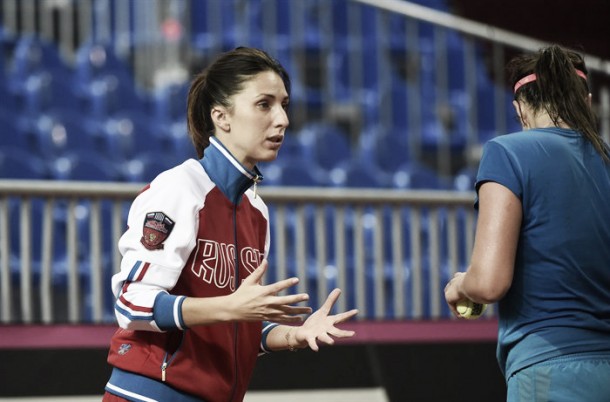The Fed Cup final was a glorious spectacle and one which the whole of the WTA, Czech Republic and Russia should be proud of. The Czechs were certainly worthy winners as their dominance over the famous trophy continued.
They came so agonisingly close to glory but with a few fatal stokes they fell short once more. For the third time in five years, Russia found themselves as the unlucky losers and not the team taking the trophy home. However, when I look at the Russian team who took to the court, I just cannot help but think just how different it could have been had Anastasia Myskina been prepared to take a chance.

In their epic 3-2 defeat to the Czech Republic, where Karolina Pliskova and Barbora Strycova came from behind to win the deciding doubles rubber, for a while it had looked like Russia were going to win.
Pavlyuchenkova thrown to the wolves
Leading 2-1 going into the final two rubbers, it seemed inconceivable that Russia would somehow throw away the lead to a faltering Czech Republic. But throw away it they did and in some style as the doubles pairing of Elena Vesnina and Anastasia Pavlyuchenkova crumbled from a set up to lose.
Whilst it would be unfair to solely blame her, for Pavlyuchenkova it was her third defeat of the weekend and the second time she had fallen from a winning position. The surprise pick for three out of the five matches, she came into the weekend with a losing record in the Fed Cup, and left with an even worse one.
One couldn't help but feel an ever increasing sense of sadness for the Russian who seemed to have been left to the wolves whilst the vastly more experienced Svetlana Kuznetsova and the higher ranked Ekaterina Makarova sat and watched.
But why did Anastasia Myskina, the Russian captain, continually throw Pavlyuchenkova into the fire, even subbing her in for twice grand slam winner Makarova at the last minute for the deciding rubber? Without any official conformation, one can only assume that Makarova picked up an injury along the way - with Myskina having announced all were fit as late as Thursday - and as thus couldn't play.
It is true that Makarova hasn't played any competitive tennis since the US Open, where she lost in the last sixteen to Kristina Mladenovic, but if it is the case that Myskina didn't want to risk her then why pick her for the team? With only four spots it seems frankly incredible that one of them was taken by a player deemed fit enough by her captain to only play in a final, dead rubber. So instead, Russia found themselves in the scenario of relying upon Pavlyuchenkova to deliver which, sadly for them, she did not.
But why, with a wealth of talented Russian players within the world' top 100, did Myskina see fit to choose an injured player over every single one of them? Naturally, one always wants to keep a closely knit bunch together, but when the knitting begins to thread, changes must be made.
Plenty of Russian fish in the sea
If we look for one moment at the list of Russian players who play their game in or around the top 100, the list makes us in the UK shudder in jealousy. Grand slam winner Svetlana Kuznetsova, talented youngster Daria Gavrilova, or even former Fed Cup player Vitalia Diatchenko. These are players who perhaps all could have done a better job than selecting an injured Makarova.
However, for the sake of argument there are many holes to be picked, including the fortunes of the aforementioned players. Svetlana Kuznetsova was naturally the most likely of all the players to be chosen, but if the rumor mill is to be believed, she rejected the chance several weeks ago. Why? Your guess is as good as mine, so perhaps Myskina had no other option.

Then there's Gavrilova, an undoubtedly talented youngster with wins this year over Alize Cornet, Ana Ivanovic and even Lucie Safarova, but she has yet to pull on her nation's colours for the Fed Cup, so perhaps it would have been madness to throw her into such a high pressure scenario. Not to mention that she too has struggled for form in the latter part of the season, and the case for her is all the less convincing.
Meanwhile Diatchenko is hardly a world beater, stranded outside the world's top 150 players and with a relatively poor season in the doubles, it is hard to argue that she would have brung much more to the tie than a floundering Pavlyuchenkova. However, she does have a one hundred percent record in the Fed Cup, having partnered Pavlyuchenkova in a win over Poland in February.
So that is why I am cautious in steamrolling through Myskina as perhaps her hands were tied. I do not for one second think she is a poor captain or leader, not at all.
But, particularly in Gavrilova and Kuznetsova, it seems clear to me that either player was a better pick than an injured Makarova. In picking a team with effectively only three players, she tied her own hands and was forced to play Pavlyuchenkova in 3 out of the 5 ties.
It was unfair to Pavlychenkova and, sadly for them, aided their downfall - although perhaps this was inevitable against a seriously fired up Czech team, with Pliskova in particular on form on the final day.
The sorry thing is that Myskina may not get another chance to guide this Russian team to the Fed Cup final, especially if Maria Sharapova feels she can't commit three long weekends once more. By far the most talented of all the Russians, if she were to prioritise the hunt for individual glory over the Fed Cup, the writing would surely be on the wall.
But, I digress.
Only Myskina will truly know why she chose the team she did, and only she will have to live with the decision. For her sake, I dearly hope she and the Russians get another crack at the trophy.





































